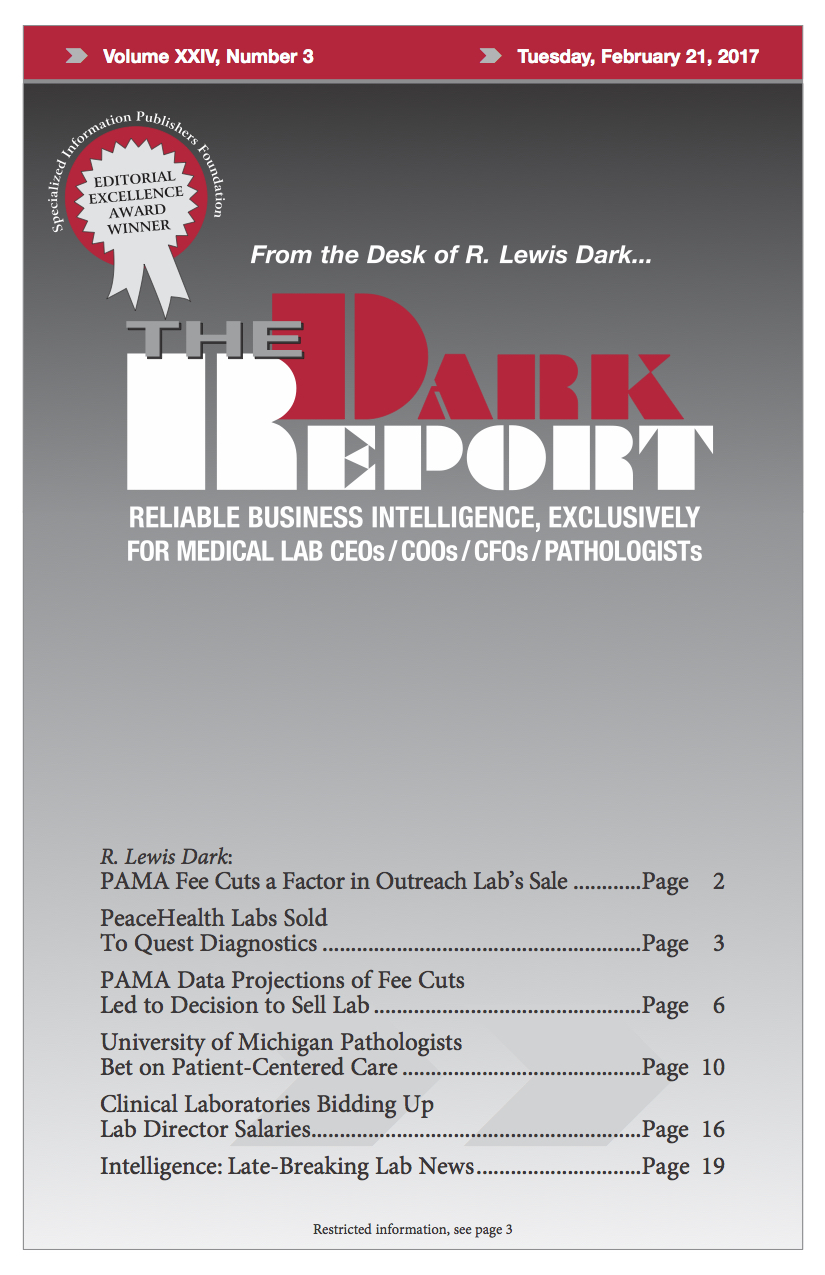CEO SUMMARY: In Oregon, one of the nation’s more successful and long-established health system outreach laboratories will cease to exist following its sale to Quest Diagnostics Incorporated. The seller explained that the Medicare Part B price cuts coming as a result of the PAMA market price reporting rule would result in a 20% revenue decline …
PeaceHealth Labs Sold To Quest Diagnostics Read More »
To access this post, you must purchase The Dark Report.


